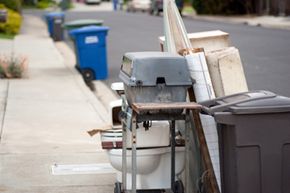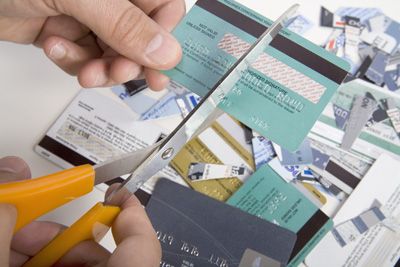For a lot of us, spring means renewal, rebirth and spring-cleaning. But if you're tired of cleaning and shifting around items that you don't even like, it's time to declutter. We all have that junk -- um, stuff -- that we don't want but don't know quite what to do with, either.
There are many reasons why I keep stuff. Sometimes, it's because the item in question was a gift, and I wouldn't want to hurt anybody's feelings. What if Aunt Alice comes over and asks to see me in that hideous blouse or wonders where I chose to display that ugly vase? (Name changed to protect the innocent.) I applied the "maybe it'll be worth something someday" line of thinking to a "limited edition" Christmas ornament for over a decade without checking to see if it was, in fact, "worth something" (it's not). Sometimes, chucking something you spent money on just confirms that you made a mistake, so you do nothing instead. And the piles grow.
Advertisement
Figuring out what to keep and what to get rid of can be stressful enough (which is why I'm going to assume that you've already divided up your stuff into "stay" and "go" categories). Once you do, you're faced with the overwhelming number of ways you can dispose of it. There was a time when we didn't have many options for re-homing our belongings: Basically, we could throw them away, cart them to a thrift store or hold a garage sale. Happily, that first option isn't used nearly as often anymore because there are so many alternatives. I don't want my stuff, but I don't want it sitting in some landfill, either.
Thrift stores, like those run by Goodwill Industries International Inc., are an easy option because you can just bag or box up your stuff and drop it off. Garage sales are still a way to go, but you need to have a significant amount of stuff to make it worth the time and effort.
But thanks in no small part to the Internet, there are more ways than ever to say adios to your things. Do you sell them on Craigslist or eBay? Use Freecycle? Find a niche charity? Recycle them? How do you know which is the best option? And we're back to square one, with that pile of "go" stuff slowly melding, by virtue of inertia, back into "keep."
Here's how to divide and conquer when it comes to that stuff taking up space around your house.
Advertisement




